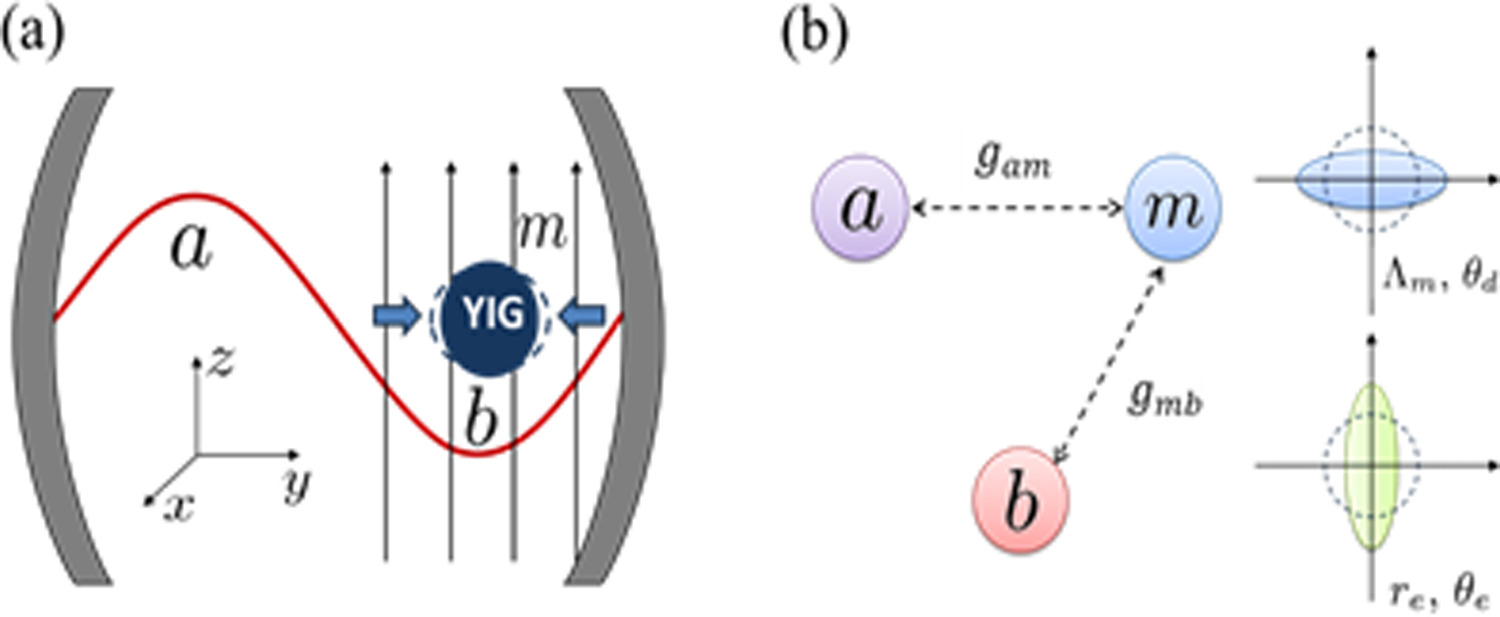https://doi.org/10.1140/epjp/s13360-024-05245-5
Regular Article
Enhancing mechanical cooling by phase-matched amplification in a cavity magnomechanical system
1
School of Physics and Electronic Technology, Liaoning Normal University, 116029, Dalian, China
2
College of Sciences, Northeastern University, 110819, Shenyang, China
3
College of Physics and Electronic Science, Hubei Normal University, 435002, Huangshi, China
4
Hubei Key Laboratory of Photoelectric Materials and Devices, Hubei Normal University, 435002, Huangshi, China
5
School of Physics, Huazhong University of Science and Technology, 430074, Wuhan, China
Received:
6
February
2024
Accepted:
6
May
2024
Published online:
29
May
2024
Due to the potential applications of the cooled system in quantum information processing, achieving the mechanical cooling in a cavity magnomechanical system has aroused abundant attention. In this paper, we propose a scheme to realize the ground-state cooling of the mechanical mode in a cavity magnomechanical system, where the squeezed magnon mode is introduced, and the magnetic environment is squeezed-vacuum bath. It is shown that the squeezed magnon mode can enhance the magnomechanical coupling strength thus promote the anti-Stokes scattering. More importantly, the noise induced by the squeezed magnon mode can be suppressed completely by the phase-matched condition. Even if the dissipation of the magnon mode is large, the mechanical mode can be cooled to the ground state.
Copyright comment Springer Nature or its licensor (e.g. a society or other partner) holds exclusive rights to this article under a publishing agreement with the author(s) or other rightsholder(s); author self-archiving of the accepted manuscript version of this article is solely governed by the terms of such publishing agreement and applicable law.
© The Author(s), under exclusive licence to Società Italiana di Fisica and Springer-Verlag GmbH Germany, part of Springer Nature 2024. Springer Nature or its licensor (e.g. a society or other partner) holds exclusive rights to this article under a publishing agreement with the author(s) or other rightsholder(s); author self-archiving of the accepted manuscript version of this article is solely governed by the terms of such publishing agreement and applicable law.





